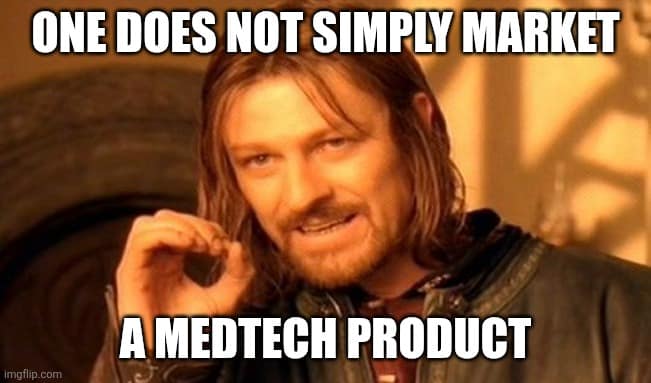Video review of his book “Web Analytics 2.0” from Ep 225 is below:
All the books featured in episode 225 are available here.
Podcast episodes plus excerpts and standalone reviews
Video review of his book “Web Analytics 2.0” from Ep 225 is below:
All the books featured in episode 225 are available here.
Video review of his book “Permission Marketing” from Ep 225 is below:
All the books featured in episode 225 are available here.
Video review of his book “You Should Test That!” from Ep 225 is below:
All the books featured in episode 225 are available here.
Video review of his book “Hacking Marketing” from Ep 225 is below:
All the books featured in episode 225 are available here.
Thinking up a new product and commercializing it is not easy. All products face Financial, Technological and of course Competitive market barriers. But doing this in the field of Healthcare is not like any other industry. In healthcare, there exist extra regulatory hurdles that make product innovation even more difficult.
Before every medical device is introduced, they must find academics who will research them and publish articles that are heavily scrutinized by peers. Then they have to endure clinical screening before receiving government approval, which applies tight restrictions on what you can say about the product and how it’s used. After they enter most markets, the products must be coded so insurers will reimburse patients who use them. So if you have a health or medical technology product, how can you market it when you face all these limits?”
For the first time here, the mic will be in somebody else’s hands. That person is Cindy Grabowski, founder of Mind Grove, a US-based training platform built specifically for MedTech professionals. Have to disclose that I have no affiliation with Mind Grove, other than giving them a no-charge review of the marketing course on their platform. Anyway, she turned the tables on me to hear me answer how you can market in the Healthcare space with so many constraints.
As I present my points on healthcare marketing, listen for tips on:
Building your digital assets throughout your product’s lifecycle
Setting up campaigns on digital channels without breeching privacy
Engaging your patient population to create your content for you
Getting buy-in from decision-makers on upgrades to your marketing program.
So give this unique talk I have with Cindy a listen – I imagine even if you aren’t in Healthcare Marketing, you’ll come away with better ideas on how to overcome your own constraints. Let’s go hear how we can navigate around constraints.
00:00 Introducing Cindy Grabowsky
01:07 Glenn takes a turn as guest on the show
03:09 What we’ll cover in Healthcare Marketing
04:33 The Big Question: Why is Healthcare so hard?
06:38 Leveraging Data in Healthcare Marketing
09:56 Case Study: EndoGastric Solutions
17:27 Optimizing Digital Presence and Compliance
33:57 Skills for measuring, managing Healthcare Marketing
People/Products/Concepts Mentioned in Show
Cindy Grabowski is a Clinical Affairs Executive with 30 years of experience in MedTech companies. She founded the MindGrove training platform to help develop tomorrow’s medtech leaders and believes true success comes from balancing work with well-being.
